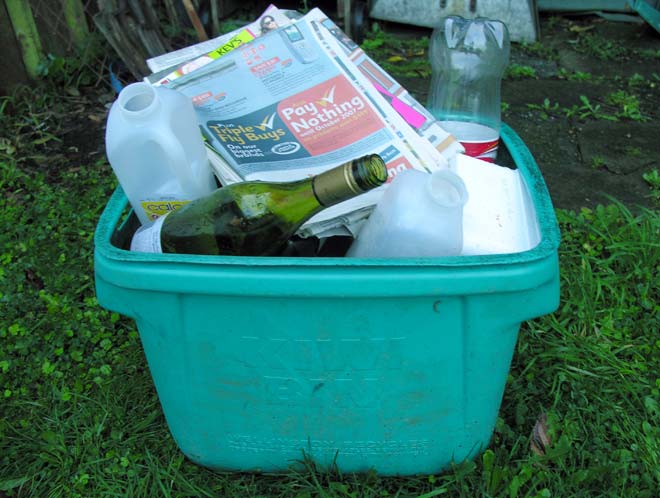
Every year, New Zealanders send around 2.5 million tonnes of rubbish to landfills. As organic waste begins to break down, it releases methane. Over a century, methane is 34 times more effective in trapping heat in the atmosphere than carbon dioxide, contributing to global warming. Recycling instead of dumping rubbish results in lower greenhouse gas emissions. Less waste means less methane. In addition, carbon emissions are decreased when goods are made from recycled rather than from raw materials. Emissions are four to five times lower when products are made from recycled steel, copper, glass and paper, and up to 40 times lower when aluminium is used.
Te whakamahi i tēnei tūemi
Te Ara – The Encyclopedia of New Zealand
Photograph by Shirley Williams
This item has been provided for private study purposes (such as school projects, family and local history research) and any published reproduction (print or electronic) may infringe copyright law. It is the responsibility of the user of any material to obtain clearance from the copyright holder.





Tāpiritia te tākupu hou